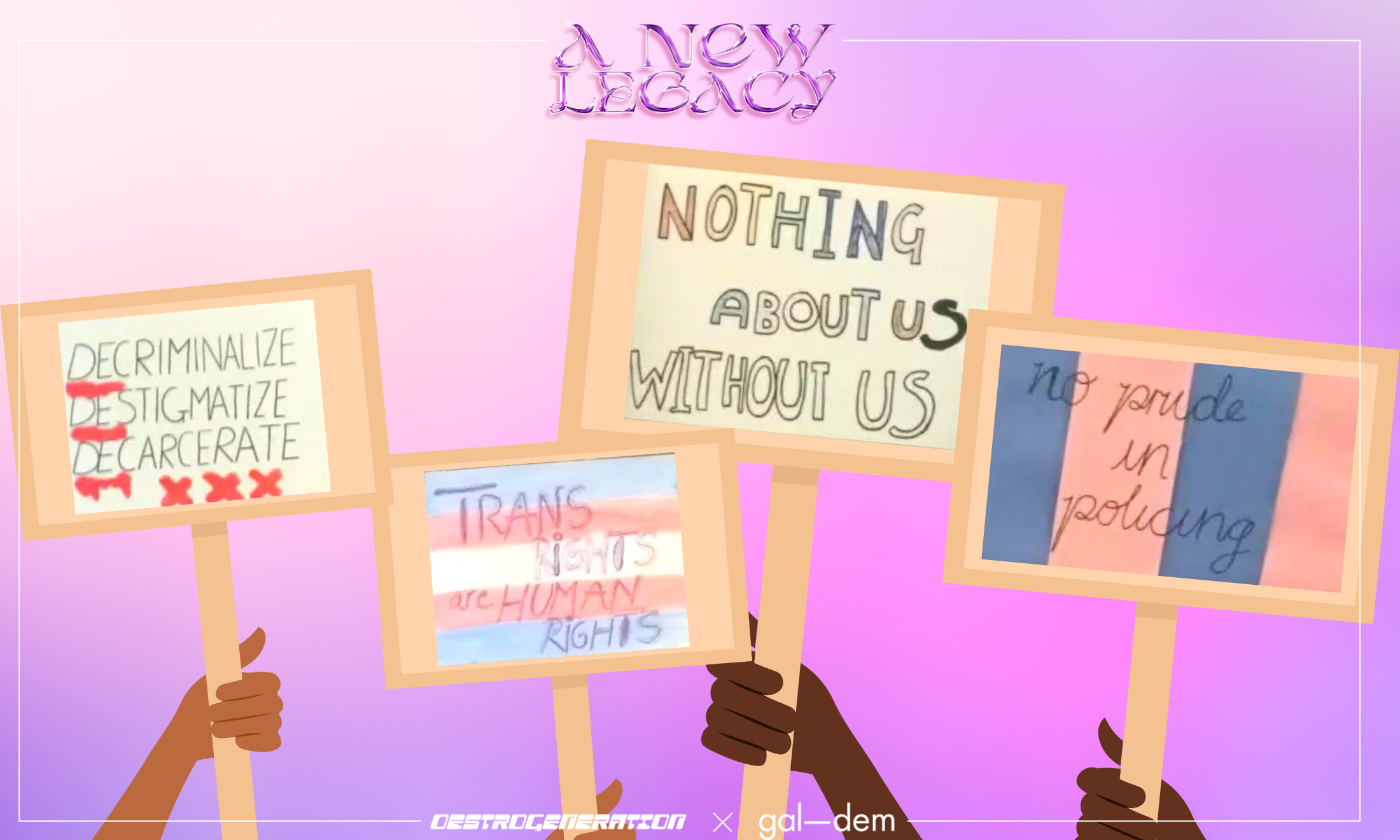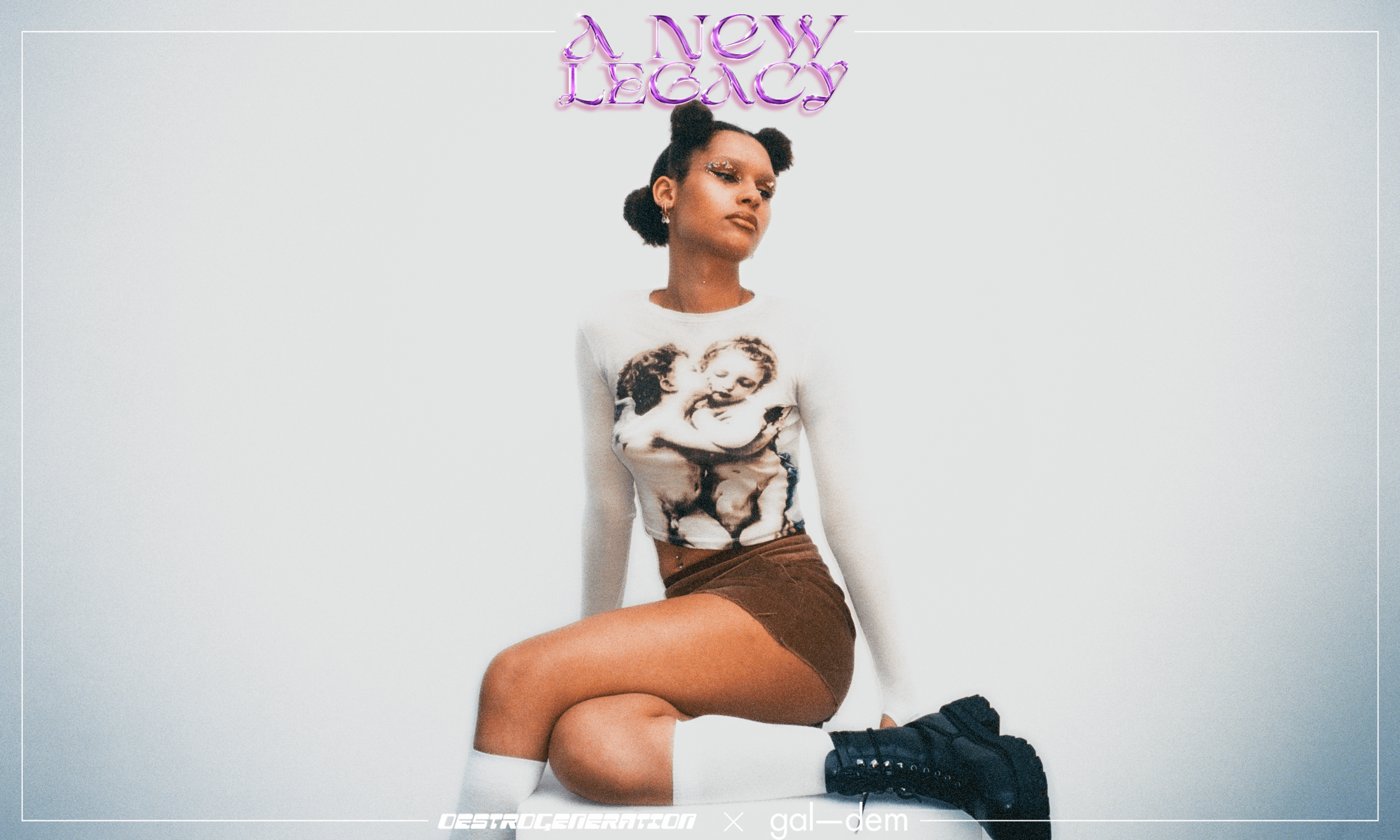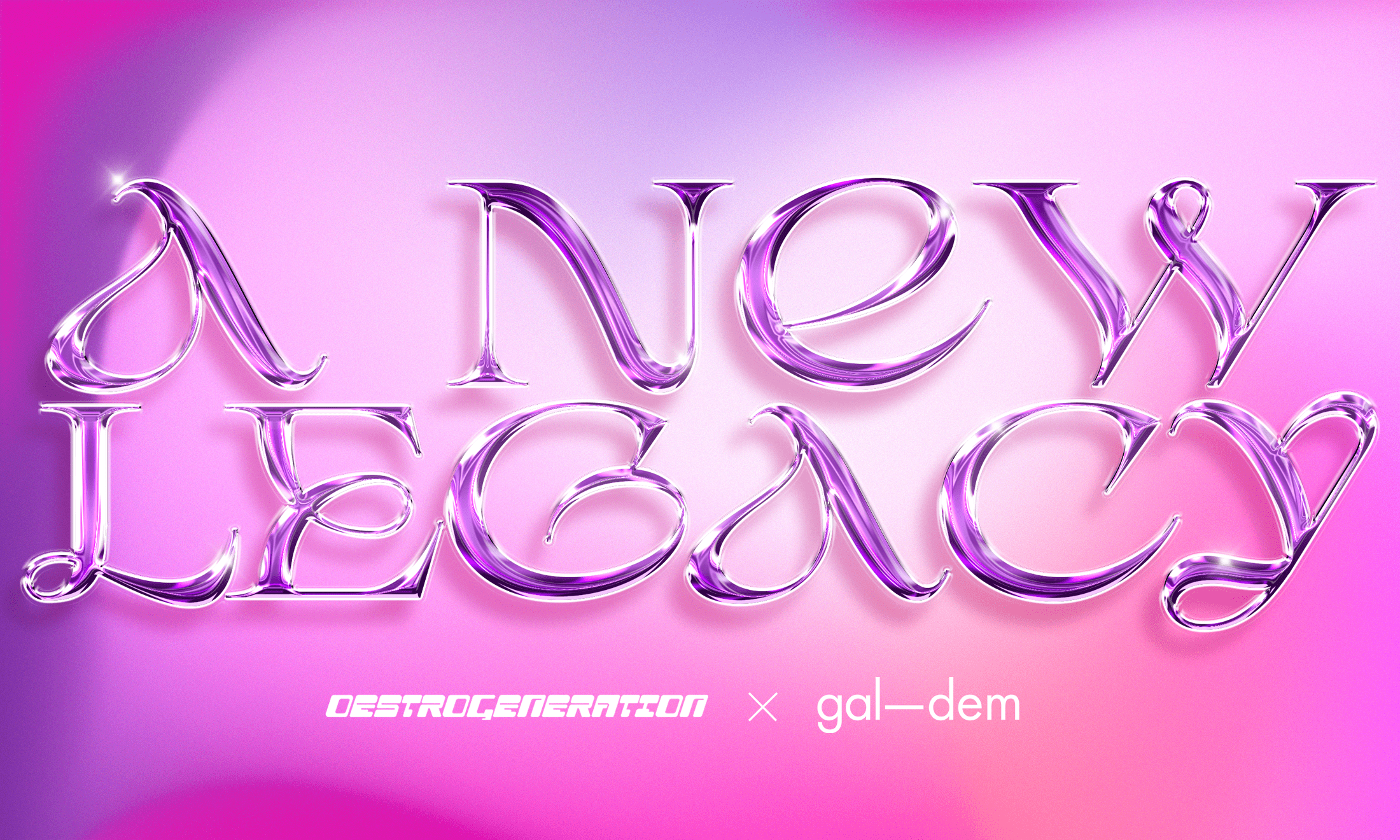How Sylvia Rivera paved the way for trans revolution
Thinking of the legendary trans activist solely as a Stonewall veteran risks overshadowing her more meaningful impact for trans organising today.
Maysa P
16 Nov 2022
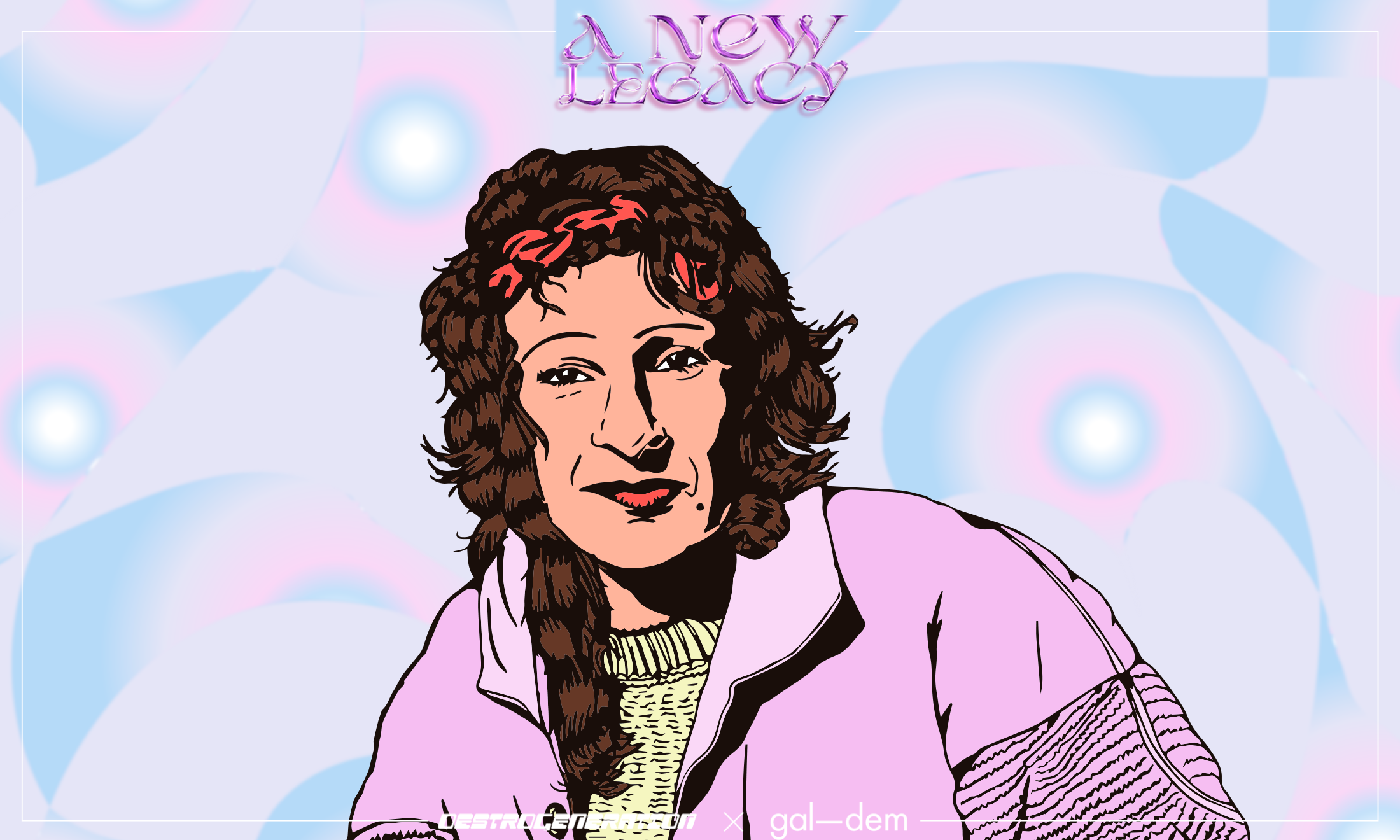
Mohammed Z. Rahman
This story is part of A new legacy — a collaboration between gal-dem and oestrogeneration platforming transfeminine writers of colour. Read more stories in the series here.
Out of respect for the activists from this period, this story uses the terms of self-identification that they used. Some of these terms may be considered outdated.
Within LGBTIQ+ liberation discourses, we often hear the phrase “trans women of colour fought for our rights”. While this may be well intentioned, it’s a harmful narrative. Not only does it romanticise that those surviving the most precarious conditions are picking up the slack for other members of the community, it also doesn’t answer the question of why trans women of colour had to fight so much harder.
Like many others, when I first learned of Sylvia Rivera, the only thing I knew of her was that she fought alongside Marsha P. Johnson in the Stonewall riots – and that was pretty much it. Remembering her in this reductive way is a massive discredit to her and her work. It also omits a huge chunk of trans liberation history and risks the loss of the many lessons she can offer us.
Some accounts have credited Sylvia with inciting the Stonewall riots, which she denied. Regardless, the thing about riots is that they’re (a) spontaneous and (b) collective. So why should her participation in the riots be the only thing that she’s remembered for? If Sylvia hadn’t been there, that would not make her any less of a revolutionary. As LGBTIQ+ historian Zagria puts it, “What [Sylvia] did later, in STAR [Street Transvestite Action Revolutionaries] and in being the public face of transgender in 1970s New York, is what is important.”
Focusing on individual acts, especially if they’re spectacles, can distract us from the more long-term, harder work that our forebears put into the liberation struggle, as well as from the critiques these historical figures had of the broader LGBTIQ+ liberation movement.
“Focusing on individual acts, especially if they’re spectacles, can distract us from the more long-term, harder work that our forebears put into the liberation struggle”
Sylvia never shied away from criticising the way the wider community abandoned trans people – just as trans community organisers today share their frustrations with the lack of wider solidarity from the LGB community. In 2002, Sylvia reflected on her involvement with the Gay Activists Alliance (GAA): “I was happy at GAA for a while. But it wasn’t my calling. I found out later on that they only believed in acquiring civil rights for the gay community as a whole. Which is fine. They did a lot of good just concentrating on the gay issue. But they left the queens behind.”
The manifesto of Street Transvestite Action Revolutionaries, or STAR (which Sylvia co-founded in 1970 and, according to Marsha, Sylvia was actually the brains behind) includes a direct call for “an end to exploitation and discrimination against transvestites within the homosexual world.” STAR was an organisation aimed at advocating for trans rights, housing queer and trans youth and fighting capitalist oppression.
Formed of Sylvia, Marsha, Andorra, Bubbles Rose Lee, Bebe Scarpi, Bambi L’Amour and other queens, STAR was frowned upon by gay activist groups, because of its association with sex work, drug use and homelessness. “By and large, they’re the great unwanteds,” said GAA founder Arthur Bell in 1971. “[STAR] is mainly into whoring and radical politics.” Bell continued: “Sylvia and Marsha and Bambi and Andorra with their third world looks and their larger-than-life presences and their cut-the-crap tongues do not ‘fit’ at a GAA meeting”.
Uninterested in palatable politics, Sylvia took pride in STAR’s association with street people. “STAR was for the street gay people, the street homeless people, and anybody that needed help at that time,” said Sylvia. “Because of this [anti-trans] oppression,” STAR’s manifesto stated, “the majority of transvestites are forced into the street and we have formed a strong alliance with our gay sisters and brothers of the street.”
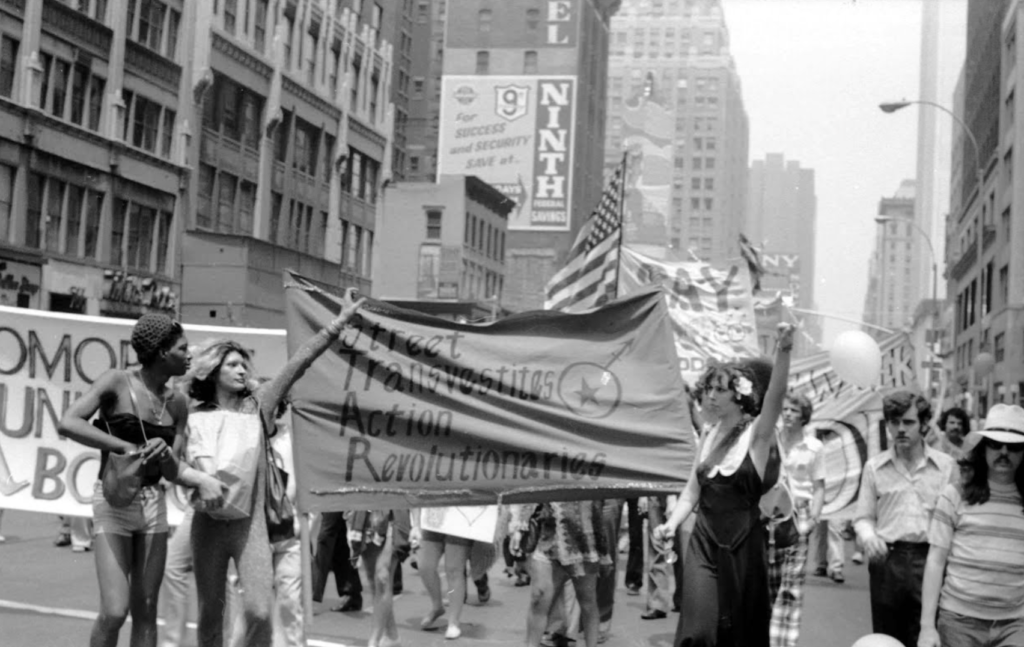
STAR and Sylvia’s activism made economic issues a priority. “Transvestites and gay street people and all oppressed people should have free education, health care, clothing, food, transportation, and housing,” reads the STAR manifesto. To remedy homelessness in the trans community STAR created StarHouse, where they housed and educated youths. Sylvia recalled that “everybody in the neighborhood loved StarHouse. They were impressed because they could leave their kids and we’d baby-sit with them. If they were hungry, we fed them. We fed half of the neighborhood because we had an abundance of food the kids liberated. It was a revolutionary thing.”
STAR’s efforts challenge the transphobic narrative that trans, especially transfeminine, people are predators who are not safe to leave kids around. Given this hostile narrative, StarHouse being welcomed and approved of in its community could be surprising. Yet, STAR’s organising resonated with other people who lived in precarity and whose safety, shelter or access to food and drink was also at risk. This history serves as an important reminder to keep our organising grounded in the everyday, bread-and-butter issues.
“This history serves as an important reminder to keep our organising grounded in the everyday, bread-and-butter issues”
This spirit of fighting for the liberation of all oppressed people also comes through in Sylvia’s fight for racial justice. In 1970, just after co-founding STAR, Sylvia, who was Venezuelan and Puerto Rican, became a proud member of the Young Lords, a radical youth organisation fighting for self-determination for Puerto Ricans. Looking back she said: “It was a fabulous feeling for me to be myself – being part of the Young Lords as a drag queen – and my organization being part of the Young Lords”.
The following year she also met Black Panther leader Huey P Newton who, Sylvia recalled, “decided we were part of the revolution – that we were revolutionary people.” The anti-colonialist dimension to Sylvia’s activism is often overlooked but it was central to her work. It is imperative for us to ally with those resisting colonialism and neocolonialism if we are to ever overthrow the system that oppresses us all.
“The anti-colonialist dimension to Sylvia’s activism is often overlooked but it was central to her work”
Another overlooked element of Sylvia’s work was her advocacy for incarcerated people. The STARs organised protests, interviewed prisoners, sought legal aid and publicised the abuses that incarcerated LGBTIQ+ people faced in the radical publication Gay Flames. Incarceration is an inhuman institution of violence, and incarcerated trans women are often at even greater risk of maltreatment, or worse.
The broader movement’s inattention towards the plight of incarcerated people increased the building tensions between the wider LGB movement and the more radical sections that included STAR.
Things reached a boiling point when the 1973 Christopher Street Liberation Day committee, mostly GAA members, turned the fourth anniversary of Stonewall into a peaceful protest focusing on entertainment. Sylvia, who was not a listed speaker, forced her way onto the stage and told the crowd: “I’ve been trying to get up here all day for your gay brothers and your gay sisters in jail that write me every motherfucking week and ask for your help and you all don’t do a god damn thing for them… They write STAR because we’re trying to do something for them.”
Sylvia was met with hostility and grossly misgendered for taking up incarcerated people’s cause and for criticising inaction. The antagonism she faced for attempting to change a violent system is bleak but also reflects the fact that not everyone in the wider movement was truly committed to fighting the system.
“Any claim of supporting trans liberation which does not uplift the most oppressed sections of society is a disingenuous one”
The LGBTIQ+ movement today, with its rampant transmisogyny and individualism, risks repeating these same historical mistakes and neglecting the victims of state violence. Any claim of supporting trans liberation which does not uplift the most oppressed sections of society is a disingenuous one.
Sylvia’s example provides us with additional lessons for the LGBTIQ+ liberation movement today.
Firstly, the boldest, most radical sections of the movement will be demonised, feared and shunned for going beyond basic rights as their aim, and for allying with the most downtrodden sections of society, regardless of whether they are of the same specific identity. This should not tempt us to water down our aims.
Secondly, our actual allies are more likely to be the people who share our experiences, not necessarily people who hold the same identity.
Thirdly, material needs have to be met for there to be true trans liberation.
And finally, trans liberation is inseparable from the liberation of all oppressed people.
If you’re a transfeminine person of colour with a story you’d like to tell, we’d love to hear from you! Please pitch to gal-dem here, and to oestrogeneration here.
The contribution of our members is crucial. Their support enables us to be proudly independent, challenge the whitewashed media landscape and most importantly, platform the work of marginalised communities. To continue this mission, we need to grow gal-dem to 6,000 members – and we can only do this with your support.
As a member you will enjoy exclusive access to our gal-dem Discord channel and Culture Club, live chats with our editors, skill shares, discounts, events, newsletters and more! Support our community and become a member today from as little as £4.99 a month.

